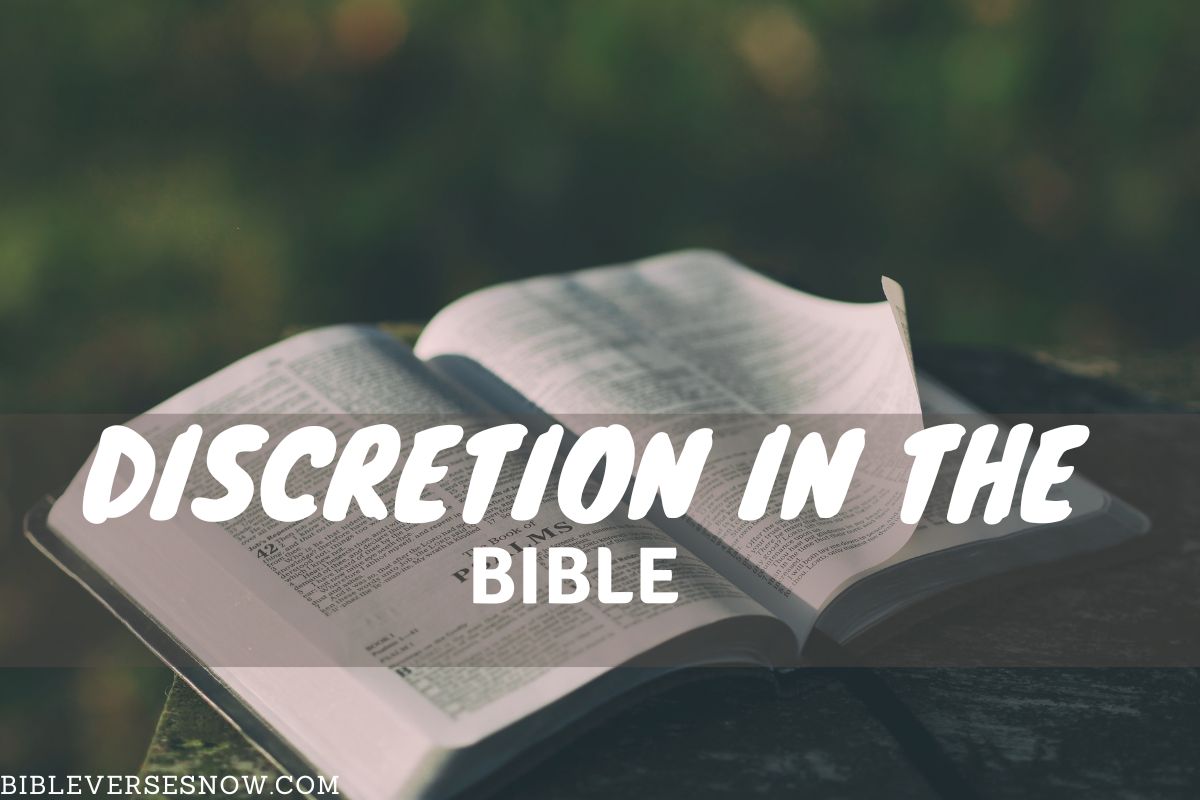Have you ever wondered what the concept of discretion truly means in the context of the Bible? In this blog post, we will explore the definition of discretion as presented in the Scriptures and its significance for our daily lives as Christians. Understanding the biblical perspective on discretion can help us make wise choices, navigate challenging situations, and honor God in all that we do.
In Proverbs 2:11, we are reminded that discretion will protect us, understanding will guard us. By delving into the meaning of discretion in the Bible, we can gain valuable insights on how to exercise good judgment, discernment, and self-control. Ultimately, embracing discretion as a virtue can lead us towards a path of righteousness and spiritual growth. Join us on this journey of discovery as we uncover the rich wisdom and transformative power of discretion in the Word of God.
Exploring the Meaning of Discretion in the Bible
Definition of Discretion in the Bible
Discretion is a concept that holds significant importance in the Bible, often being referred to as a valuable trait or attribute to possess. In essence, discretion can be understood as the ability to make wise and discerning decisions based on careful consideration and good judgment. It involves acting with prudence, thoughtfulness, and sensitivity in various situations, particularly when faced with choices or dilemmas.
The Book of Proverbs in the Old Testament frequently mentions the importance of discretion. Proverbs 2:11 states, “Discretion will protect you, and understanding will guard you,” highlighting how exercising discretion can serve as a form of protection and safeguard for individuals. Similarly, Proverbs 3:21-23 emphasizes the benefits of wisdom and discretion, asserting that they bring life and grace to those who embrace them.
Furthermore, the New Testament also touches upon the concept of discretion. In the Epistle to the Ephesians, Paul encourages believers to “Be very careful, then, how you live—not as unwise but as wise, making the most of every opportunity, because the days are evil (Ephesians 5:15-16).” This passage underscores the importance of living wisely and utilizing discretion in navigating the challenges of life.
Overall, discretion in the Bible is closely tied to wisdom, discernment, and righteousness. It involves seeking guidance from God, analyzing situations with a clear mind, and making choices that align with biblical principles. By exercising discretion, individuals can avoid pitfalls, make sound decisions, and honor God in all aspects of their lives.
What does discretion means in the Bible?
In the Bible, discretion is often associated with wisdom, prudence, and sound judgment. It refers to the ability to make careful and sensible decisions, especially in difficult or sensitive situations.
One notable verse that highlights the importance of discretion is Proverbs 3:21-23, which says, “My son, let them not depart from your eyes—keep sound wisdom and discretion; so they will be life to your soul and grace to your neck. Then you will walk safely in your way, and your foot will not stumble.”
Having discretion means being able to discern what is right and act accordingly, avoiding hasty or foolish choices. It is a quality that is highly valued in the Bible as it leads to better outcomes and a life guided by God’s wisdom.
What is the full meaning of discretion?
Discretion in the context of the Bible refers to the ability to make sound judgments and choices based on God’s wisdom and guidance. It involves prudence, wisdom, and caution in decision-making, particularly in moral and spiritual matters. The Bible often encourages believers to exercise discretion in their words, actions, and interactions with others, seeking to honor God and reflect His character in all they do.
What is the difference between discernment and discretion?
Discernment in the context of the Bible refers to the ability to distinguish truth from error, right from wrong, and good from evil through the guidance of the Holy Spirit. It involves the capacity to perceive and understand spiritual matters and make wise decisions based on biblical principles.
Discretion, on the other hand, relates to using good judgment and caution in one’s actions and speech. It involves knowing when to speak and when to remain silent, as well as how to behave appropriately in various situations while honoring God and others.
In summary, while discernment focuses on spiritually perceiving and understanding truth, discretion emphasizes the practical application of wisdom in our daily lives. Both are important qualities for Christians to cultivate as they seek to live according to God’s will and purpose.
What is spiritual discretion?
Spiritual discretion in the Bible refers to the ability to discern and make wise decisions guided by spiritual principles. It involves being able to differentiate between right and wrong, good and evil, and to act according to God’s will and teachings. Spiritual discretion is developed through a close relationship with God, prayer, studying the Scriptures, and seeking divine guidance in all aspects of life. It allows individuals to navigate moral dilemmas, make choices that honor God, and live in alignment with Christian values.

